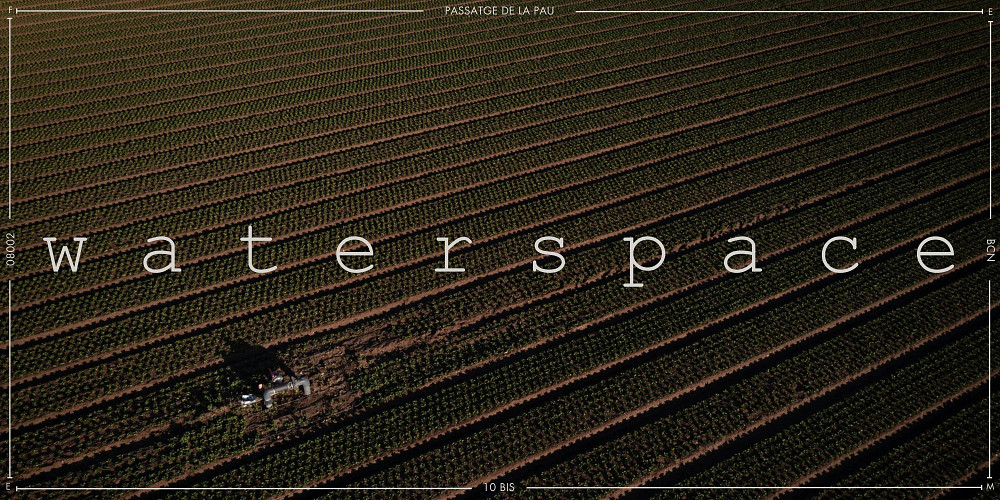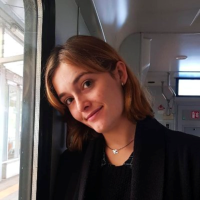w a t e r s p a c e, an open space for thoughts to broaden our vision of water
I've been thinking about an idea for days: reality is unbreakable. After decades in which hyper-specialisation has been hailed as the great triumph of human progress, we have finally, as a society, concluded that it causes just the opposite effect; it dehumanises us. Only by understanding, albeit in-depth, the piece of puzzle that you know perfectly well, can the awareness of the relationship of dependence towards the other pieces evaporate. Thus, any suspicion of interdependence or need for exchange fades into an arrogant sense of thinking we already know everything there is to know. In the case of water, the fluidity of the resource makes it clear that, no matter how hard one tries, water is unbreakable. Even more, it is precisely its essence to be present everywhere and to be part of all the networks of life without a clear defining line. As an inescapable presence, water flows and permeates every vital presence, shaping all the life surrounding and nourishing us. Water is life, many say, but what life does water give us? And how do we, as a society, relate to this vital resource?
From the 13th to the 15th of March, Fundació Enric Miralles (FEM) hosted the second edition of one of the most innovative festivals in this new commitment to interdisciplinary dialogue in the field of water. w a t e r s p a c e, spelled with the premeditated spaces, is a platform that aims to explore the artistic engagements, scientific interactions, and political interfaces with water, that shape our socio-hydrological world. It is co-created by FEM and NEWAVE, an EU-funded Innovative Training Networks (ITN) with coordination at the Vrije University of Amsterdam that aims to open the debate on water governance. Fundación Nueva Cultura del Agua (FNCA) was also a partner of the event, and it had the support of the Ministerio de Transportes, Movilidad y Agenda Urbana (MITMA) and the General Directorate of Urban Agenda and Architecture from the Catalan Government. This year's event aimed to investigate the artistic engagements, scientific interactions, and political interfaces with water that shape our socio-hydrological world through interdisciplinary interaction between artists, designers, architects, activists and scientists. This year’s event included distinguished architects like Toni Gironès Saderra (Toni Gironès) and Benedetta Tagliabue (Fundació Enric Miralles), renowned experts such as Prof. Leandro del Moral (FNCA), Prof. Beatriz Rodriguez-Labajaos (UPF) and prominent members of the NEWAVE network such as Julia Martínez (FNCA), Jampel Dell'Angelo (principal researcher of NEWAVE), and many others.
But the jewel in the crown, beyond the beautiful exhibition hall where the conference was held, was the photography exhibit by photographer and NEWAVE researcher Javier Rodríguez Ros, designed and coordinated by the Enric Miralles Foundation. Under the title "Mares Verdes", the researcher emphasised the need to comprehend the Segura basin as a paradigm. Far from being just an aesthetic space named the "green sea" that is strategically used to legitimate a modernisation process, the Segura Basin has become a space for an agro-industrial lobby that supplies an international market of horticultural products. The water governance of the Segura Basin must move towards a change of imagination where irrigation does not only reproduce the interests of a few but is presented as a space that gives an opportunity to rethink the relationship that water and politics have with the territory. Thus, Rodríguez Ros mentioned how "the photography process generated a contribution to the way of critically seeing the territory and recognizing, from the sight, the infinite ecosocial interrelations and interdependencies that exist in the irrigated communities".
The images and words that flowed in the w a t e r s p a c e platform allowed both its audience and its active participants to lay their eyes on some of the cases explained but also on some of the shortcomings of the current system. The architect Carles Enrich stated that "Barcelona needs to think of itself as a city from a hydrological perspective". Other participants, such as the architect and professor Toni Gironès, emphasised the need to "do more pedagogy on the importance of the four elements" in our urban governance. Sustainability researcher and performing artist, María Heras captured the key point, stating that as a species "we are very bad at anticipating, but very good at adapting".
The exhibition will be open to the public until the 31 May, and the work of the researchers, artists, and architects who participated can be followed on on the NEWAVE and Fundació Enric Miralles channels. As an attempt of a laboratory of thought, places like w a t e r s p a c e offer the indispensable excuse to think about the necessity to broaden our vision of water.





